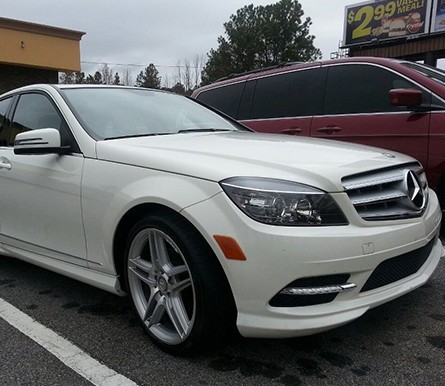 |
Q. What is diminished value?
A. Diminished value is the loss in a vehicle's market value due to accident damage and repair. Three things affect diminished value:
- Inherent Diminished Value: The automatic loss in vehicle market value as a result of an accident.
- Repair-Related Diminished Value: The loss in vehicle market value due to substandard quality repairs.
- Insurance-Related Diminished Value: The loss in market value due to insurance claims practices.
Q. Who pays diminished value?
A. Either your insurance company or the person responsible for the accident and their insurance company. By law, you are owed compensation for diminished value even if your vehicle has been repaired correctly.
|
|
Q. Who is entitled to diminished value?
A. You are. If your vehicle has been in an accident, you have lost money. This loss is owed to you for up to two years.
Q. If my insurance company fails to process my claim or pay the agreed-upon amount, what can I do?
A. First, contact your insurance agent. Next, talk to the Branch or Regional Claims Manager of the insurance company.
|
 |
Q. If there is a problem with the repair job, who should you contact?
A. First, the manager of the shop. If your problem is still not resolved, contact your insurance company claims manager. You may also want to contact the Bureau of Consumer Protection.
Q. Who is responsible for the repairs?
A. The shop. That's why it is important that you select a repair facility that is properly trained and equipped to restore your automobile to its pre-accident condition.
Q. Who pays the repair bills?
A. You must arrange for payment. Your insurance policy states the insurance company will pay you less any deductibles or depreciation.
Q. Must I notify my insurance company before repairs?
A. Yes. Insurance policies require that you notify the company or your agent, make a report, and tell them where the damaged vehicle may be inspected.
Q. Do I need to get three estimates?
A. No. Notify your agent or insurance company. Your insurance adjuster may need to inspect the damage. If your insurance company has a drive-in claims service and your car is safe to drive, you should call them for an appointment, take your car there, make sure you get a copy of the insurance adjuster's estimate, and take it with your automobile to the shop of your choice.
Some insurance agents may tell you to get two or three estimates. Talk to your insurance adjuster first. Generally, claims are handled by the insurance company's claims department, not agents.
In some areas, your insurance agent may be authorized by the insurance company to pay your claim. If he or she tells you to get two estimates, ask if he/she will pay your claim from his/her office. If the answer is yes, getting two estimates may speed up your claims payment. If the answer is no, talk to your insurance adjuster first. Do not get an estimate from a shop you would not let repair your vehicle. In order to expedite your claim, we recommend you: (1) select the repair shop you trust, (2) leave your automobile there, and (3) and notify your insurance agent or company.
Q. Do I have the right to select the shop that will repair my car?
A. Yes. Below is the State of Georgia legal code stating these facts:
GEORGIA CODE - Copyright 2008 by The State of Georgia. All rights reserved.
Current through the 2008 Regular Session
TITLE 33. INSURANCE | CHAPTER 34. MOTOR VEHICLE ACCIDENT REPARATIONS | O.C.G.A. § 33-34-6 (2008) § 33-34-6. Selection of motor vehicle repair facility
(a) Subject to the provisions of subsection (b) of this Code section, no insurer shall represent to a person making a claim under a motor vehicle insurance policy that the use of or the failure to use a particular repair facility or particular repair facilities may result in the nonpayment of a claim. (b) No insurer shall require a person making a claim under a motor vehicle insurance policy to use a particular repair facility or particular repair facilities in order to settle a claim if the person making the claim can obtain the repair work on the motor vehicle at the same cost from another source.
HISTORY: Code 1981, § 33-34-6, enacted by Ga. L. 1991, p. 1608, § 1.12; Ga. L. 1992, p. 2464, § 2; Ga. L.